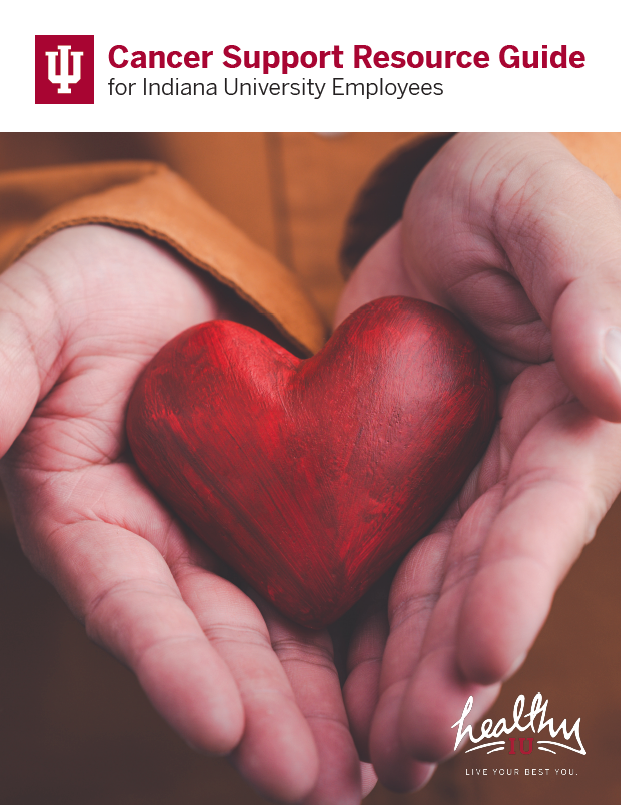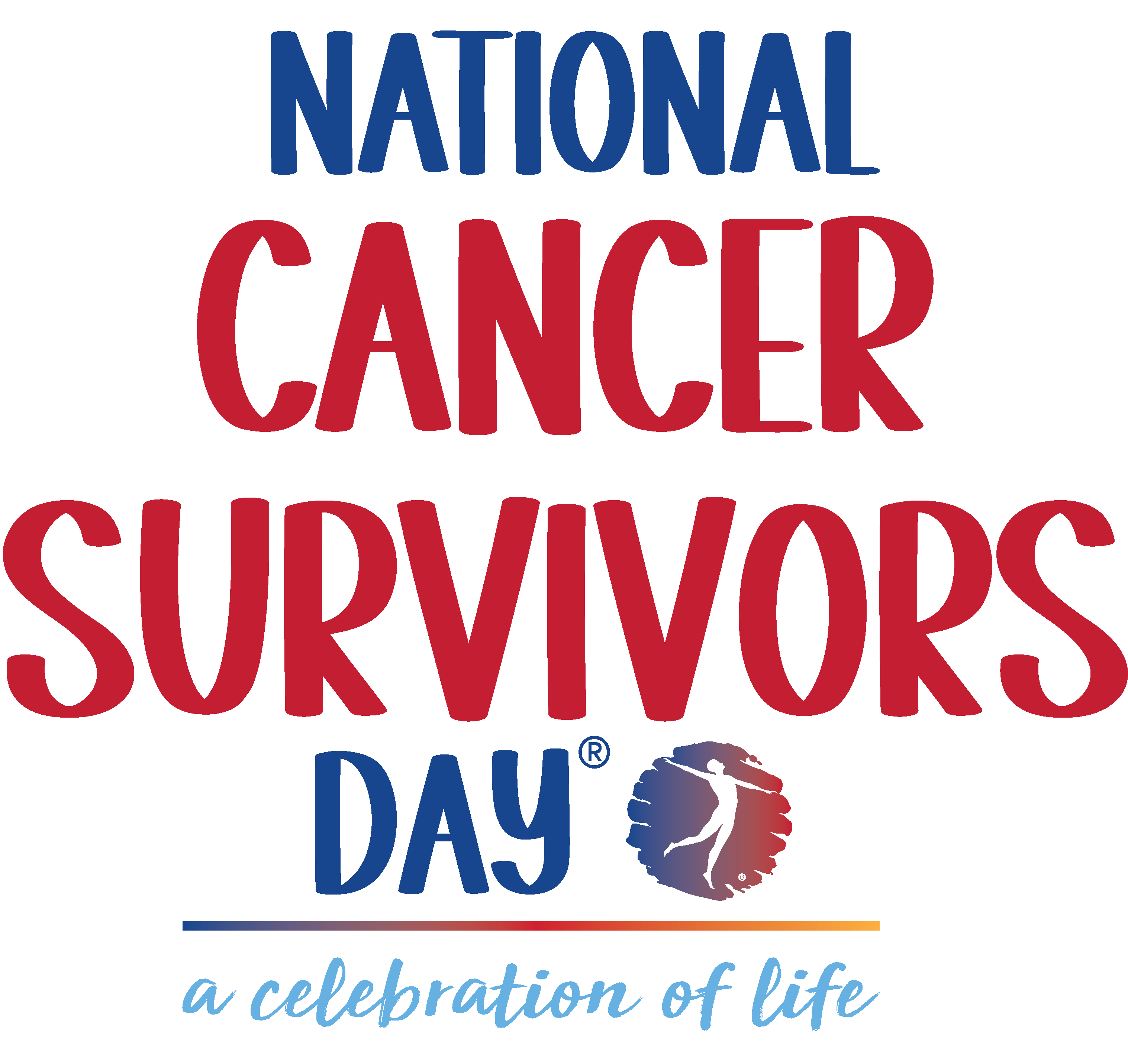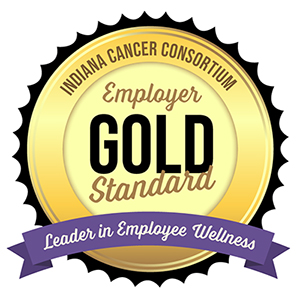No matter where you are in your journey, there are resources and support for you.
According to the American Cancer Society, avoiding use of tobacco, maintaining a healthy weight, eating nutritious foods, and getting physical activity are important factors in risk reduction.
- Tobacco Cessation: Learn about IU’s tobacco-free policy and find resources to help you kick the habit. IU Simon Comprehensive Cancer Center’s Tobacco Treatment Program offers one-on-one counseling, assistance with medication options, and other resources for Simon Cancer Center patients. Call 317-944-7848 or email stoptobacco@iuhealth.org
- Physical activity: Learn more about recommended physical activity guidelines, and check out physical activity options on your campus. Or get active for a cause by participating in cancer-related events such as Race for the Cure and Relay for Life.
- Eat nutritious foods: Find delicious and healthy options near you, and check out Healthy IU nutrition resources, including personalized nutrition counseling sessions.
- Healthy weight: Whether you are looking to lose weight or maintain your current weight, there are resources and Healthy IU programs for you.
Additional Risk Reduction Factors
According to the National Cancer Institute, certain infectious agents can cause cancer or increase the risk that cancer will form. You can lower your risk of infection by getting vaccinated, not having unprotected sex, and not sharing needles.
HPV vaccines are vaccines that protect against infection with human papillomaviruses (HPV).
Early detection of abnormal tissue or cancer is important. If cancer is found early, it may be easier to treat.
There are many cancer screening tests in use today. These include: colonoscopies, mammograms, pap tests, skin exams, and more. Screening tests are recommended based on age, gender, and risk factors. This interactive tool from the American Cancer Society shows which screenings are recommended for your age group.
Talk to your healthcare provider to develop a personal plan for cancer screening based on age, gender, and risk factors.
Click here for a calendar of Cancer Awareness Months and ribbon colors (from choosehope.com).
If you or a loved one needs treatment for cancer, clinical trials are an option to think about. Include clinical trials in any discussions with your healthcare provider about treatment options. Learn more about clinical trials with the resources below.
What is a clinical trial?
- Kathy Miller, MD, discusses clinical trials at IU (IU School of Medicine)
- “Taking Part in Cancer Treatment Research” brochure (National Cancer Institute)
- Clinical Trials and You (National Institutes of Health)
Finding a clinical trial
- Research & Clinical Trials (IU Simon Comprehensive Cancer Center)
- How Do I Find a Clinical Trial That’s Right for Me? (American Cancer Society)
- Find NCI-Supported Clinical Trials (National Cancer Institute)
- Clinicaltrials.gov (U.S. National Library of Medicine)
When it comes to your treatment team, give yourself the best. The resources below will help you find the care you need.
Recognized programs
- Commission-on-Cancer: The Commission on Cancer recognizes cancer care programs for their commitment to providing comprehensive, high-quality, and multidisciplinary patient centered care. (American College of Surgeons)
- NCI-Designated Cancer Centers: NCI-Designated Cancer Centers are recognized for their scientific leadership, resources, and the depth and breadth of their research in basic, clinical, and/or population science. The Indiana University Melvin and Bren Simon Comprehensive Cancer Center is Indiana’s only NCI-designated Comprehensive Cancer Center and one of only 51 in the nation.
Finding high-quality care
- Finding Health Care Services (National Cancer Institute)
- Choosing Your Treatment Team (American Cancer Society)
- Quality Cancer Care (National Coalition for Cancer Survivorship)
IU Cancer Survivor Community — Microsoft Teams Group
This Teams group is intended to provide a supportive, compassionate, and caring environment for Indiana University employees who have experienced cancer to connect with each other. Any IU cancer survivor is welcome to join and share tools, resources, and support to others through their cancer journey. Contact healthyu@iu.edu to request to join.
If you or a loved one has been diagnosed with cancer, these resources can assist you:
- Office of Cancer Survivorship (National Cancer Institute)
- Your Survivorship Care Plan (The LIVESTRONG Foundation)
- Survivorship Checklist (National Coalition for Cancer Survivorship)
- Cancer Survivors Guide to Healthy Living (CDC)
- The National Cancer Survivorship Resource Center (American Cancer Society and the George Washington University Cancer Institute)
- Tools for Cancer Survivors and Caregivers (American Cancer Society)
- Little Red Door Agency
- Cancer Support Community
IU has resources and policies that can help provide support to employees diagnosed with cancer or those caring for someone diagnosed with cancer.
IU Cancer Support Resource Guide: This guide provides information and resources for IU employees, such as IU medical plan coverage for cancer diagnosis, community support services and groups, survivorship plans, advocacy, and more.
Care.com: Eligible employees have access to IU’s premium Care.com membership to search for care options such as backup care, home & pet care, child care, and more.
Family Medical Leave Act (FMLA): The Family and Medical Leave Act of 1993, provides up to 12 weeks of absence to eligible employees for certain family and medical reasons. The purpose of FMLA is to help eligible employees balance work and family obligations while providing an element of job security during the leave period. Contact askHR to learn more.
Complimentary Clinical Review: If you are someone with a complex medical condition, you may want to learn as much as possible about your diagnosis, available treatment options, or a second opinion about the typical treatment plans that may be right for you. Through an exclusive offering for Anthem members, you can now receive a virtual Complimentary Clinical Review from top-ranked experts in specialties such as heart, cancer, gynecology and urology at the Cleveland Clinic. This clinical review is available to you at no extra cost.
Please contact askHR if you or someone you know needs additional assistance or workplace accommodations.
Read Melissa Williams’ Story: As a colorectal cancer survivor, IU Bloomington’s Melissa Williams hopes sharing her story will help inspire others to get screened.
Read Mary Jo Toenges’ Story: Breast cancer survivor Mary Jo Toenges retiree from IU Fort Wayne shares how her yearly mammogram helped save her life.
Read Hope Kaser’s Story: Hope Kaser created cancer nutrition support and education for fellow cancer patients while on her own cancer treatment journey.
To connect IU’s 250 cancer experts with the community, the IU Simon Comprehensive Cancer Center hosts the “Simon Says Expert Series,” a monthly virtual event where you’ll have the opportunity to hear from cancer center experts about various topics and ask your questions.
Learn about the IU Simon Comprehensive Cancer Center’s End Lung Cancer Now initiative, which brings together advocates to tackle the No. 1 cause of cancer-related deaths – lung cancer.
Read a Q&A with the initiative’s founder, Nasser Hanna, M.D., the Tom and Julie Wood Family Foundation Professor of Lung Cancer Clinical Research at Indiana University School of Medicine and a physician scientist at the Indiana University Melvin and Bren Simon Comprehensive Cancer Center.
Featured Resources & Events
IU Cancer Support Guide

This guide provides information and resources for IU employees, such as IU medical plan coverage for cancer diagnosis, community support services and groups, survivorship plans, advocacy, and more.
National Cancer Survivors Day Event

Join others in the IU community as we honor and celebrate the cancer survivors on the first Sunday in June.
A Focus on Early Detection
As part of the Healthy People 2030 initiative, the US Department of Health and Human Services has a Preventative Care objective of increasing the proportion of adults who get screened for specific cancers, resulting in fewer cancer deaths. Check out the IU Melvin and Bren Simon Comprehensive Cancer Center’s prevention and early detection resources.
Breast cancer is the second leading cause of cancer death, and excluding skin cancers, the most frequently diagnosed cancer among females in the U.S. The lifetime risk of developing breast cancer among females is one in eight.
Watch the on-demand webinar, Cervical Cancer Prevention 101: Take Charge of Your Health.
The cervix is part of the female reproductive system — connecting the uterus to the vagina (or birth canal). Cervical cancer is an abnormal growth of cells on the cervix, or an abnormal growth of cells that began in the cervix. HPV infection is the single greatest risk factor for cervical cancer.
Q&A with HPV expert Dr. Darron Brown (IU School of Medicine)
Watch the on-demand webinar, Colorectal Cancer Prevention 101: Take Charge of Your Health.
Colorectal cancer is cancer that starts in either the colon or the rectum. Colon cancer and rectal cancer have many features in common. Colorectal cancer is the third most commonly diagnosed cancer and cause of cancer-related death among both males and females in the US and Indiana.
Lung cancer is the No. 1 cause of cancer-related death in men and women worldwide. Tobacco products cause 80% to 90% of lung cancer.
Testicular cancer is the most common type of cancer to occur in males 15 to 35 years old. Testicular cancer is rare, occurring in less than one percent of males in the United States each year. If caught early, testicular cancer has a cure rate of almost 100 percent.
Unlike many other cancers, prostate cancer often doesn’t cause any noticeable symptoms in most men. When caught early through screening with a simple blood draw, prostate cancer can typically be treated very successfully.
Anyone is at risk for skin cancer — no matter your race, gender or age. But when caught early, skin cancer is highly treatable.
The Indiana Breast and Cervical Cancer Program (BCCP) is the Hoosier implementation of the National Breast and Cervical Cancer Early Detection Program (NBCCEDP). The BCCP provides access to breast and cervical cancer screenings, diagnostic testing, and treatment for underserved and underinsured women who qualify for services.
Learn more about the Indiana Breast and Cervical Cancer Program.
Cancer & the Workplace
Cancer + Careers: Cancer and Careers empowers and educates people with cancer to thrive in their workplace, by providing expert advice, interactive tools and educational events.
- You’ve Just Been Diagnosed: Now What? (Cancer + Careers)
- Know Your Rights (CancerCare®)
- Legal and Financial Considerations (Cancer + Careers)
- Back to Work After Cancer (Cancer + Careers)
- Returning to Work After Cancer (Cancer.net – American Society of Clinical Oncology)
- Going to Work During and After Cancer (Cancer.net – American Society of Clinical Oncology)
- Workplace Transitions: A Step-by-Step Guide on Supporting Employees Touched by Cancer (Cancer + Careers)
- Helping a Colleague Cope with Cancer in the Workplace (CancerCare®)
- When a Co-Worker Has Cancer (Cancer + Careers)
- How to Be an Effective Point Person (Cancer + Careers)
- Cancer in the Workplace: Co-Worker Tip Sheet (American Cancer Society)
IU is a Cancer Gold Standard Employer


